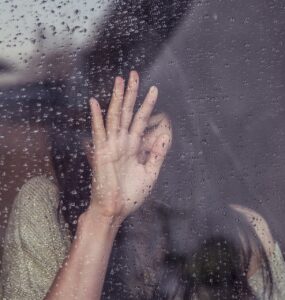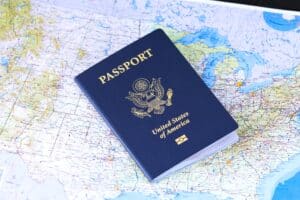Episode 1: Palestinian Christian women living under the Israeli Occupation
The Women Behind the Wall podcast highlights female voices from the Holy Land, and is hosted and produced solely by women who live and work in Jerusalem. The podcast seeks to amplify minority voices and perspectives, especially women’s experiences in the private sphere as it is affected by the public sphere. We hope you’ll join us here every Thursday for 10 weeks as we highlight each episode.
Research suggests that standard peace and security processes routinely overlook the inclusion of women, even though a growing body of analysis shows that higher levels of gender equality are associated with a lower propensity for conflict, both between and within states (Council on Foreign Relations, 10/2016). Women Behind the Wall stands at the intersection of gender, religion, and conflict, offering listeners a glimpse into life under the Israeli occupation. The aim is to show how the political circumstances seep into daily life, affecting women, their children and families, and their communities. The women featured in this podcast come from a variety of backgrounds and religious traditions: Assyrian, Greek Orthodox, Catholic, Armenian Orthodox, and evangelical. Over the span of nine full-length episodes, listeners are introduced to a diverse lineup of narratives:
- A Palestinian mother reflects on the challenges of raising her children without hatred while struggling to find answers about the injustice they regularly experience (Ep. 2).
- A young, single Palestinian woman, reflects on growing up under occupation and the theological challenges she experiences due to western Christian justification of the occupation in the Holy Land (Ep. 3).
- A Palestinian woman on creating space for healing in her community and how to give the next generation of Palestinian children, including her own, a healthy sense of self and wholeness despite the everyday realities of military occupation (Ep. 4).
- A Palestinian mother from East Jerusalem on her marriage to a West Banker, the challenges of trying to pass on her legal status to her children, and her longing to experience her basic human rights (Ep. 5).
- An American Christian woman in Israel shares about her work among Jerusalemite and West Bank women; on the high prevalence of trauma and domestic violence; and how military checkpoints, children’s arrests, and night raids affect women. (Ep. 6)
- A Palestinian-Israeli woman from the Galilee on her marriage to a West Banker and her reflections on identity and the Palestinian-Israeli conflict. (Ep. 7)
- A single, Palestinian-Israeli woman from a Muslim background on how her family responded to her changing her religion and her work among women in East Jerusalem (Ep. 8).
- An Armenian woman from Jerusalem living in the West Bank on how her Armenian identity gives her a different role in the conflict and a different life experience from her Palestinian neighbors (Ep. 9).
- A Palestinian grandmother caring for her elderly father dreams of emigrating to be with her children and grandchildren abroad (Ep. 10).
While the women are diverse, there is a common theme throughout each narrative. Between passion and career, personal and professional, private and public, the series unites those spheres, recognizing that each facet of a woman’s life must be valued and validated in order to get a glimpse of the full, lived human experience.
We pray this podcast reaches people who are both familiar and unfamiliar with what is happening in Israel and Palestine. That the human stories shared throughout the series will be received with humility, empathy, and conviction. We ask for Jesus’ example of honoring the stories and experiences of the oppressed to be embodied by each listener. And we pray for women around the world who are marginalized and harmed by man-made conflict.
ESA is grateful to our friends at Churches for Middle East Peace for reprint permissions.


